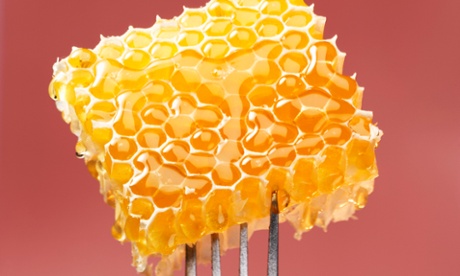
A group of schoolchildren in north London recently carried out a randomised trial on manuka honey which seemed to disprove once and for all the strong claims made for its ability to keep flu and colds at bay. However, it wasn’t the results of their brilliant experiment that interested one newspaper reporter so much as its location. Oh, the irony that such a breakthrough should be made in Islington, a place he referred to as “Britain’s spiritual home of nonsense health fads”. How on earth, he wondered, were the locals going to take this news? After all, don’t their corner shops sell little else? Those he interviewed were obliging, their tongues reaching immediately for their cheeks. “It’s deeply subversive,” said Andrea Sella, a UCL chemist and parent at the school involved. “Islington may never be the same again.”
Ho ho, I thought as I read this story, perched at my kitchen table in – yes – downtown Islington. I wasn’t, at that particular moment, much in the mood for tedious cracks about the price of Ottolenghi’s butternut squash with tahini. I was trying to take a breather. Plus, I had a little irony of my own to hand, what with having just come from the Tube, a walk that inevitably requires me to wade through pile after pile of discarded takeaway boxes and flattened Coke bottles, and what with the certain knowledge that I would soon have to head out in the other direction, a journey that would take me past a local restaurant that is called, enticingly, Chick-Pizz. (No, its speciality is not chickpeas. It is, I believe, a one-stop shop for the purchase of fried chicken and pizza.) All I wanted, you understand, was to be able to enjoy a swift Crunchie and a strong cup of PG Tips in peace and quiet without any recourse to – or even thoughts of – kale, gluten-free bread or overpriced honey from New Zealand.
But I digress. In truth, I was unreasonably pleased to hear that manuka appears to do a person no more or less good than any other kind of honey (perhaps this is why the reporter’s tone irked me so). Even before you get to the cost – a 340g jar of Steens “cold process extraction” New Zealand manuka with an “anti-bacterial rating” of 20+ will set you back a loopy £33.95 – its bitter taste has always seemed to me to be the very opposite of what honey should be, which is to say sweet and comforting.
I also have an inbuilt loathing of any foodstuff that comes trailing celebrity fans (Gwyneth Paltrow, joyless Twiglet that she is, believes in manuka, and so does Scarlett Johansson, who rubs it into her face – here’s the science bit – to “pull out the impurities”). Most of all, though, there is just the simple fact that there are so many other, more delicious honeys out there in the world to be enjoyed. And I should know. When it comes to honey, those smart aleck kids have got nothing on me.
The best I’ve ever tasted came from Yemen, a country famed across the Middle East for its honey, which is made from the flowers of the sidr tree, aka Christ’s thorn, the jujube or the lote. In 2008, I bought two combs in Wadi Hadramawt, a lonely and magical place that it would be impossible to visit now, and transported them back to Britain in a couple of tins, one for me, and one from my honey-addict friend, Nick. All I can tell you is that it was magnificent: floral without being cloying (though the Yemenis, I read, mix it with carrot seed and claim it as an aphrodisiac – so it could, in theory, be cloying in other ways).
On these shores, sea lavender honey is notable both for its mildness and its lovely pale yellow-green colour – though it’s difficult to track down (you can sometimes find it at farmers markets in London and East Anglia). I also like the honey produced by Steve Benbow at the London Honey Company. He sells all sorts: borage, ling heather, Isle of Purbeck (the latter is made mostly from hawthorn blossom, which to me gives it extra romance). But my best treat would be a comb of his distinctive London honey, the work of urban bees. The thought of their hives, high on tower-block roofs and other out-of-the-way places, relieves the low moods brought on by knee-deep litter and fried chicken joints. Spread the city on your toast, and it begins to seem sweet once again.

